Royal Society of NSW Scholarships
The Royal Society of New South Wales has a long tradition of encouraging and supporting scientific research and leading intellectual life in the State. The Council of the Royal Society has established the Royal Society of New South Wales Scholarships in order to acknowledge outstanding achievements by young researchers.
Royal Society of NSW Scholarship Winners 2022
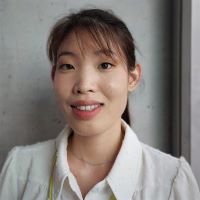 Miss Clara Liu Chung Ming is a PhD candidate in the School of Biomedical Engineering at the University of Technology Sydney under the supervision of Dr Carmine Gentile. Her research focusses on the bioengineering of advanced 3D in vitro models of the human heart pathophysiology, including “the-heart attack-in-a-Petri-dish” and heart failure using patient derived-stem cells. In particular, Clara has demonstrated that acetylcholine (a natural compound produced by our body) plays a protective role against myocardial infarction (heart attack) and drug-induced heart failure using her cells. Clara’s multidisciplinary project is carried in collaboration with the University of Sydney/Charles Perkins Centre/Sydney Heart Bank, Royal Prince Alfred Hospital and Baker Heart and Diabetes Institute/Monash University. Clara’s research has focussed also on the effects of Sars-CoV-2 on human heart pathophysiology, as well as the bioengineering of pre-eclampsia-induced heart failure using patient-derived stem cells. Her research has received several awards, including Australian Government Research Training Program Stipend (2021), FEIT HDR Women in Engineering and IT awards (2021), ASBTE Rapid Fire Presentation Award (2022) and NSW Education Waratah Scholarship (2022).
Miss Clara Liu Chung Ming is a PhD candidate in the School of Biomedical Engineering at the University of Technology Sydney under the supervision of Dr Carmine Gentile. Her research focusses on the bioengineering of advanced 3D in vitro models of the human heart pathophysiology, including “the-heart attack-in-a-Petri-dish” and heart failure using patient derived-stem cells. In particular, Clara has demonstrated that acetylcholine (a natural compound produced by our body) plays a protective role against myocardial infarction (heart attack) and drug-induced heart failure using her cells. Clara’s multidisciplinary project is carried in collaboration with the University of Sydney/Charles Perkins Centre/Sydney Heart Bank, Royal Prince Alfred Hospital and Baker Heart and Diabetes Institute/Monash University. Clara’s research has focussed also on the effects of Sars-CoV-2 on human heart pathophysiology, as well as the bioengineering of pre-eclampsia-induced heart failure using patient-derived stem cells. Her research has received several awards, including Australian Government Research Training Program Stipend (2021), FEIT HDR Women in Engineering and IT awards (2021), ASBTE Rapid Fire Presentation Award (2022) and NSW Education Waratah Scholarship (2022).
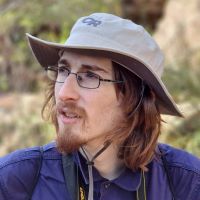 Mr Thomas Mesaglio works on quantifying our knowledge of Australian plant biodiversity, developing identification tools, survey and species description protocols and general data frameworks for improving this knowledge. Although much of his research focuses on analyses of ‘citizen science’ data, he has published scientific papers in disciplines including marine forensics, bushfire recovery and invertebrate ecology and taxonomy. As part of the Environment Recovery Project team, he received the Department of Industry, Science and Resources’ 2022 Eureka Prize for Innovation in Citizen Science. He has published two books: a guide to scientific etymology and a seashell field guide and is a curator and forum moderator on the citizen science platform iNaturalist, with 39,000 observations and 227,000 identifications made for other users.
Mr Thomas Mesaglio works on quantifying our knowledge of Australian plant biodiversity, developing identification tools, survey and species description protocols and general data frameworks for improving this knowledge. Although much of his research focuses on analyses of ‘citizen science’ data, he has published scientific papers in disciplines including marine forensics, bushfire recovery and invertebrate ecology and taxonomy. As part of the Environment Recovery Project team, he received the Department of Industry, Science and Resources’ 2022 Eureka Prize for Innovation in Citizen Science. He has published two books: a guide to scientific etymology and a seashell field guide and is a curator and forum moderator on the citizen science platform iNaturalist, with 39,000 observations and 227,000 identifications made for other users.
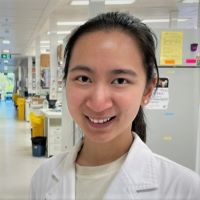 Ms Anyang Zhao's research is focused on the clinically important foodborne pathogen called Listeria, which causes 20-30% of death in humans. She has identified that Listeria infection triggers inflammation and cell death, which are biological processes crucial for overcoming Listeria infection. Excessive inflammation caused by the immune system while fighting off Listeria infection can lead to sepsis and death. Anyang’s research aims to inhibit such excessive inflammation and could lead to the development of therapies against sepsis. During her first year of PhD study, Anyang published a preview article in Cell Host & Microbe (2022) as co-first author, and further co-authored two primary research articles in Science Immunology (2022) and Nature Communications. Her research achievements have been recognised by multiple prizes, scholarships and grants.
Ms Anyang Zhao's research is focused on the clinically important foodborne pathogen called Listeria, which causes 20-30% of death in humans. She has identified that Listeria infection triggers inflammation and cell death, which are biological processes crucial for overcoming Listeria infection. Excessive inflammation caused by the immune system while fighting off Listeria infection can lead to sepsis and death. Anyang’s research aims to inhibit such excessive inflammation and could lead to the development of therapies against sepsis. During her first year of PhD study, Anyang published a preview article in Cell Host & Microbe (2022) as co-first author, and further co-authored two primary research articles in Science Immunology (2022) and Nature Communications. Her research achievements have been recognised by multiple prizes, scholarships and grants.
Royal Society of NSW Scholarship Winners 2021
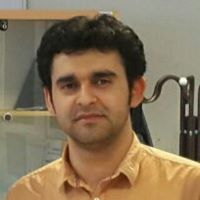 Sajad Abolpour Moshizi, PhD Candidate at macquarie University. In his PhD, Mr Moshizi is conducting research on the development of hair-cell sensors for use inside the semicircular canals in the inner ear to treat patients suffering from balance problems and gaze instability. He is a recipient of the Biomolecular Discovery Research Centre (BDRC) Postgraduate Prize and winner of the best internationally peer-reviewed paper by a postgraduate student as a first author accepted for publication (“Development of an ultrasensitive, and flexible piezoresistive flow sensor using vertical graphene nanosheets”) in Nano-Micro Letters. He is a recipient of a Macquarie University Postgraduate Research Fund (PGRF) scheme of up to $3000 and has more than 30 peer-reviewed journal articles.
Sajad Abolpour Moshizi, PhD Candidate at macquarie University. In his PhD, Mr Moshizi is conducting research on the development of hair-cell sensors for use inside the semicircular canals in the inner ear to treat patients suffering from balance problems and gaze instability. He is a recipient of the Biomolecular Discovery Research Centre (BDRC) Postgraduate Prize and winner of the best internationally peer-reviewed paper by a postgraduate student as a first author accepted for publication (“Development of an ultrasensitive, and flexible piezoresistive flow sensor using vertical graphene nanosheets”) in Nano-Micro Letters. He is a recipient of a Macquarie University Postgraduate Research Fund (PGRF) scheme of up to $3000 and has more than 30 peer-reviewed journal articles.
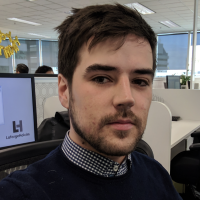
Harry Marquis, PhD candidate in the School of Physics at the University of Sydney. His research is primarily conducted at the Department of Nuclear Medicine, Royal North Shore Hospital, under the supervision of Professor Dale Bailey. His project is titled “Development of a Dosimetry Platform for Theranostic Agents” and his key research interests are in quantitative PET and SPECT imaging, diagnostic medical imaging and image processing, theranostics and radionuclide therapy dosimetry, radiobiology and radiation safety. Harry’s research has already gained international recognition, receiving the Arthur Weis Award in 2020 for outstanding original work in radiation safety and dosimetry from the Society of Nuclear Medicine and Molecular Imaging (SNMMI). In 2021, his work was featured in the SNMMI plenary lecture highlights “Basic Science Instrumentation & Data analysis: Image Generation” session and was also shortlisted for the best poster award in the physics track.
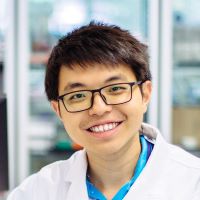 Kevin Chau, an MRes student at Macquarie University, joined the Analytical Glycoimmunology team in April 2018 as an undergraduate volunteer to study the removal of synapses by microglial receptors in the brain during sleep. After completing his course work to near-perfection, he decided to undertake a Master of Research (MRes) degree focusing on platelet glycobiology. During the past 3–4 years he has shown great potential and talent, demonstrated, for example, by the award of multiple prestigious scholarships and prizes during his coursework progress. His research focuses on mapping the glycoproteome of human platelets.
Kevin Chau, an MRes student at Macquarie University, joined the Analytical Glycoimmunology team in April 2018 as an undergraduate volunteer to study the removal of synapses by microglial receptors in the brain during sleep. After completing his course work to near-perfection, he decided to undertake a Master of Research (MRes) degree focusing on platelet glycobiology. During the past 3–4 years he has shown great potential and talent, demonstrated, for example, by the award of multiple prestigious scholarships and prizes during his coursework progress. His research focuses on mapping the glycoproteome of human platelets.
Royal Society of NSW Scholarship Winners 2020
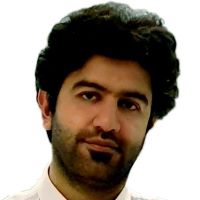 Mr Sajad Razavi Bazaz , PhD candidate at the University of Technology Sydney. In his PhD, Mr Razavi Bazaz studies the use of 3D printing for microfluidics. Microfluidics is a science which allows the manipulation of fluid samples, typically in the range of microlitres, within networks of channels ranging from tens to hundreds of micrometres. Microfluidic systems are becoming increasingly promising tools for the advancement of chemical and biological research with evident benefits. Today, 3D printing technologies have gained significant traction, being dubbed a third industrial revolution. Due to the expanding use of microfluidic systems in laboratories, 3D printing has emerged as an alternative method to traditional costly fabrication processes. Mr Razavi Bazaz has developed a new method for the fabrication of microfluidic devices and has validated it. He and his colleagues have established a start-up company to develop 3D printed microfluidic devices for selective sperm selection for the IVF market.
Mr Sajad Razavi Bazaz , PhD candidate at the University of Technology Sydney. In his PhD, Mr Razavi Bazaz studies the use of 3D printing for microfluidics. Microfluidics is a science which allows the manipulation of fluid samples, typically in the range of microlitres, within networks of channels ranging from tens to hundreds of micrometres. Microfluidic systems are becoming increasingly promising tools for the advancement of chemical and biological research with evident benefits. Today, 3D printing technologies have gained significant traction, being dubbed a third industrial revolution. Due to the expanding use of microfluidic systems in laboratories, 3D printing has emerged as an alternative method to traditional costly fabrication processes. Mr Razavi Bazaz has developed a new method for the fabrication of microfluidic devices and has validated it. He and his colleagues have established a start-up company to develop 3D printed microfluidic devices for selective sperm selection for the IVF market.
 Mr Daniel Fox, PhD candidate at the Australian National University. Mr Fox is studying the clinically important, but much neglected, human and foodborne pathogen, B Cereus, and has discovered that enterotoxins produced by this bacterium can activate cytosolic innate immune inflammasome sensors which mediate host defence against pathogens. The sensing of pathogens by inflammasome sensor proteins results in the assembly of the inflammasome complex. Mr Fox has identified a toxin NHE as a novel activator of the NLRP3 inflammasome because it triggers formation of a lytic pore that promotes the efflux of potassium ions. He has also found it mediates the killing of cells from multiple lineages and hosts. It acts synergistically with another toxin secreted by the same organism, HBL.
Mr Daniel Fox, PhD candidate at the Australian National University. Mr Fox is studying the clinically important, but much neglected, human and foodborne pathogen, B Cereus, and has discovered that enterotoxins produced by this bacterium can activate cytosolic innate immune inflammasome sensors which mediate host defence against pathogens. The sensing of pathogens by inflammasome sensor proteins results in the assembly of the inflammasome complex. Mr Fox has identified a toxin NHE as a novel activator of the NLRP3 inflammasome because it triggers formation of a lytic pore that promotes the efflux of potassium ions. He has also found it mediates the killing of cells from multiple lineages and hosts. It acts synergistically with another toxin secreted by the same organism, HBL.
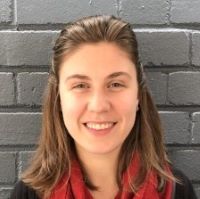 Ms Phillipa Specker, PhD candidate at UNSW (Sydney). Ms Specker investigating the role of emotional regulation in the management of post-traumatic stress disorder (PTSD) in refugees. Refugees represent one of the largest at-risk groups in the development of PTSD, with current treatments being much less efficacious compared to other trauma-exposed groups. Research suggests that emotion regulating strategies that refugees used to manage stress may be critically important in their recovery from PTSD. In the first part of her PhD program, she found that there were individual differences in the types of emotion regulation strategies that refugees used to manage stress and that those refugees who were better able to concurrently use cognitive reappraisal and emotional suppression had fewer PTSD symptoms. Currently, she is testing a novel experimental paradigm to investigate whether providing refugees with adaptive emotion regulation skills training will reduce PTSD symptomology and ultimately improve well-being.
Ms Phillipa Specker, PhD candidate at UNSW (Sydney). Ms Specker investigating the role of emotional regulation in the management of post-traumatic stress disorder (PTSD) in refugees. Refugees represent one of the largest at-risk groups in the development of PTSD, with current treatments being much less efficacious compared to other trauma-exposed groups. Research suggests that emotion regulating strategies that refugees used to manage stress may be critically important in their recovery from PTSD. In the first part of her PhD program, she found that there were individual differences in the types of emotion regulation strategies that refugees used to manage stress and that those refugees who were better able to concurrently use cognitive reappraisal and emotional suppression had fewer PTSD symptoms. Currently, she is testing a novel experimental paradigm to investigate whether providing refugees with adaptive emotion regulation skills training will reduce PTSD symptomology and ultimately improve well-being.
Royal Society of NSW Scholarship Winners 2019
Ms Emma Austin, PhD candidate at the University of Newcastle. Ms Austin’s research investigates the relationship between drought and wellbeing in rural communities in NSW, taking into account the links between wellbeing and adaptive capacity, and the need for the successful adaptation to drought together with increased resilience which is essential for the survival of rural communities.
Mr Shayam Balaji, PhD candidate at the University of Sydney. Mr Balaji’s research is in the field of particle physics which explores the fundamental building blocks of the Universe and the interactions between them. The focus of his work, as a member of the ATLAS Collaboration at CERN’s Large Hadron Collider, is in testing exotic Higgs boson models and extensions to the Standard Model of particle physics.
Mr Michael Papanicolao, PhD candidate at the University of Technology Sydney and the Garvan Institute of Medical Research. Mr Papanicolao’s research involves investigations into the role of the extracellular matrix (ECM) in breast tumour progression. The focus of his work is on charting how the ECM evolves with tumour progression, using protein mass spectrometry and advanced imaging to identify targetable proteins that are important in breast cancer metastasis.
Mr Thomas Pettit, PhD candidate at the University of Technology Sydney. Mr Pettit’s reseach is in the field of biofilter technology, in which he has been developing and assessing the use of active green walls to clean the air of active pollutants to provide functional reductions of air pollution in zones where the are most needed.
Royal Society of NSW Scholarship Winners 2018
Ms Evelyn Todd, PhD candidate at the University of Sydney. Ms Todd has been working on delving into the genetics of race horse performance, unlocking the historical roots of this breed. It is fascinating work, both from a scientific perspective, but also from the importance of understanding how to manage a closed population breed.
Ms Fiona McDougall, PhD candidate at Macquarie University. Ms McDougall is investigating non-viral pathogens in flying foxes, specifically bacteria pathogens and the spread of antibiotic resistant bacteria to flying foxes.
List of Recipients of Royal Society of NSW Scholarships
| Year | Recipients | |
| 1999 | Alison Basden, Sharon Downes | |
| 2000 | Louise van der Weyden, William Higgs | |
| 2008 | Gerard Kaiko | |
| 2009 | Isa Chan, Tamara Keeley, Danielle Sulikowski | |
| 2010 | Lidia Matesic, Dennis Black, Kerensa McElroy | |
| 2011 | Andre Kyme, Amelia Edington, Benjamin Parker, Martin Fuechsle | |
| 2012 | Jendi Kepple, Anwen Krause-Heuer, Helen Margherita Smith, Andrew Ong* | |
| 2013 | Jiangbo Zhao, John Chan, Jessica Stanley, Xavier Zambrana-Puyalto* | |
| 2014 | Melanie Laird, Stephen Parker, Ruth Wells, Linh Tran* | |
| 2015 | Adrian Dudek, Charles Forster, Yevgeny Stadnik, Charles Colless* | |
| 2016 | Jeremy Chan, Andrew Ritchie, Isobel Ronai | |
| 2017 | Grace Causer, Yu-wei Lin, Cara Van Der Wal | |
| 2018 | Evelyn Todd, Fiona McDougall | |
| 2019 | Emma Austin, Shayam Balaji, Michael Papanicolaou, Thomas Pettit | |
| 2020 | Sajad Razavi Bazaz, Daniel Fox, Phillipa Specker | |
| 2021 | Sajad Abolpour Moshizi, Harry Marquis, Kevin (The Huong) Chau | |
| 2022 | Clara Chung Ming Liu, Thomas Mesaglio, Anyang (Anya) Zhao |
*also recipient of the Jak Kelly Award, presented in conjunction with the Australian Institute of Physics
The Royal Society of New South Wales Medal
On this page:
About the Medal
The Society's Medal is awarded from time to time to a member of the Society who has made meritorious contributions to the Society’s administration, organisation, and endeavours.
The Society's Medal was the first initiative of the Society to recognize its members' contributions, deriving in concept from the Society's Money Prize of 1882. It was awarded for published papers from 1884 to 1896, together with a money prize of £25, but was discontinued from 1897 to 1942. In 1943, it was revived (without the money prize) as an award for a member of the Society who had made meritorious contributions to the advancement of science, including administration and organization of scientific endeavour and for services to the Society.
Recent Medal Winners
2020: Emerita Professor Mary O’Kane AC FRSN FTSE Hon FIEAust
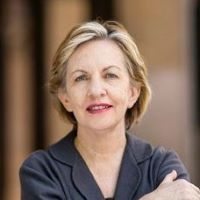 Emerita Professor Mary O’Kane was appointed as the first New South Wales Chief Scientist and Engineer in 2008 and remained in the position until 2018. Prior to that she was Vice-Chancellor and President of the University of Adelaide from 1996 to 2001. From 1994 to 1996 she was Deputy Vice-Chancellor (Research) and Professor of Electrical Engineering at the University of Adelaide. From 1989 to 1993 she was Dean of the Faculty of Information Sciences and Engineering at the University of Canberra.
Emerita Professor Mary O’Kane was appointed as the first New South Wales Chief Scientist and Engineer in 2008 and remained in the position until 2018. Prior to that she was Vice-Chancellor and President of the University of Adelaide from 1996 to 2001. From 1994 to 1996 she was Deputy Vice-Chancellor (Research) and Professor of Electrical Engineering at the University of Adelaide. From 1989 to 1993 she was Dean of the Faculty of Information Sciences and Engineering at the University of Canberra.
Early on, as the New South Wales Chief Scientist and Engineer, she established a relationship between her office and the Royal Society of New South Wales which, in essence, provided the Society with access to the State Government. She was a strong supporter of the Society, providing funding for the publication of the Journal and Proceedings. Later she provided funding and hosted the Four Societies Lecture when it was the Royal Society's turn to organise this event. She also instigated an awards mechanism for the Society, by which the Science Deans of NSW and ACT universities came together under her chairmanship to make recommendations for the Society’s prizes and scholarships. She advocated for the Society in government and also was a strong supporter of the Royal Society of New South Wales and Four Academies Forum held annually at Government House, Sydney.
2019: Emeritus Professor Brynn Hibbert AM FRSN
Emeritus Professor David Brynn Hibbert AM FRSN was the second incumbent of the Chair of Analytical Chemistry at the University of New South Wales in Sydney. His research interests are in electroanalytical chemistry and chemometrics and metrology in chemistry. He has published approximately 250 papers, five books and holds several patents. He is past Chair of the Analytical Division of the Royal Australian Chemical Institute, Secretary of the Analytical Division of the International Union of Pure and Applied Chemistry, was a Council member of the Australian Academy for Forensic Sciences and was President of the Society during 2016-17.
As a Council member of the Royal Society of NSW, Vice-President and President he has contributed strongly to every aspect of the Society’s governance. He was key in establishing the reputation of the category of Fellow when it was introduced in 2012, and has continued this work as Chair of the Fellows and Members Assessment Committee to this day.
As President, he continued to provide momentum to the Society’s growth through a most effective, good-natured leadership style that encouraged the contribution of the entire membership and fostered the collegiate nature of the Society to great effect. Continuing as Vice-President (immediate Past-President), he has brought wisdom and good judgement to many important issues considered by Council.
In the 2018 Queen’s Birthday Honours List, Emeritus Professor Hibbert was made a Member of The Order of Australia for significant service to science in the discipline of chemistry, to professional societies, and to sport through illicit drug profiling.
Emeritus Professor Hibbert is a worthy recipient of The Royal Society of NSW Medal.
2017: Dr Donald Hector AM FRSN
Dr Hector was President of the Society from 2012 to 2015. Under his presidency, the Society undertook major strategic initiatives that rebuilt its membership, invigorated its programs, including the now annual Forum, and modernized its back-office processes. Dr Hector’s infectious enthusiasm and his approach of leading by doing, combined with his scientific, managerial and administrative skills, have helped move the Society forward to new endeavours, reinforcing the Society’s position as a leader in the intellectual life of New South Wales and the country.
List of Recipients of the Royal Society of NSW Medal
| Year & Recipient | Year & Recipient |
|---|---|
|
1884 W.E. Abbott |
1970 J.A. Dulhunty |
The Poggendorff Lectureship
The Poggendorff Lectureship is awarded every two to three years for research in plant biology and, more broadly, agriculture. Nominations close on 30 September of each year in which nominations are sought.
The application procedure for this lectureship is described on the nomination form. Each application must comply with the conditions of the award and consist of a completed nomination form together with supporting documentation as specified on the form. Completed nominations should be sent to the email address listed on the nomination form.
Walter Poggendorff was a biologist and plant breeder with a particular interest in the breeding of rice. In 1928, the Yanco Rice Research Station was established by the NSW Department of Agriculture with approximately 670 acres just south of Leeton on the banks of the Murrumbidgee River. A brilliant young biologist, Walter Poggendorff was transferred there as an assistant plant breeder.
Poggendorff’s early accomplishments included recognizing the need to quarantine imported rice and producing strains of rice that were able to offer growers late, mid-season, early and very early short-grain varieties. He also developed similar long-grain strains but these were not required by the market until much later. Poggendorff is recognised as one of the major figures in establishing the Australian rice industry, developing high-yield crops for Australian conditions and maintaining controls on imports to limit the introduction of serious diseases. Poggendorff’s work was not confined to rice — in the 1930s and 1940s, he worked with peaches, apricots, pears, almonds, grapes and rock melons. Later, he became Chief of the Division of Plant Industry in the NSW Department of Agriculture.
When he died in 1981, he made a bequest to the Royal Society of NSW to fund a lecture.
Poggendorff Lectureship 2021
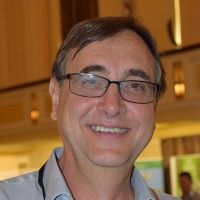 The Poggendorff Lectureship for 2021 has been awarded to Professor Richard Trethowan, Director of the IA Watson Research Centre, Narrabri Plant Breeding Institute and a member of the School of Life and Environmental Sciences at the University of Sydney. Professor Trethowan is a world-leading plant breeder whose work has improved our understanding of the genetic control of heat resistance in wheat, an important trait globally, and has contributed significantly to the development of new technologies including hybrid wheat systems and the application of genomic selection to plants. His work has led to the development of unique genetic wheat strains that have impacted the productivity of agricultural systems in many countries. These impacts include the release of wheat cultivars to farmers from his experimental materials, either directly, through their use as parents, or the application of knowledge generated from his research.
The Poggendorff Lectureship for 2021 has been awarded to Professor Richard Trethowan, Director of the IA Watson Research Centre, Narrabri Plant Breeding Institute and a member of the School of Life and Environmental Sciences at the University of Sydney. Professor Trethowan is a world-leading plant breeder whose work has improved our understanding of the genetic control of heat resistance in wheat, an important trait globally, and has contributed significantly to the development of new technologies including hybrid wheat systems and the application of genomic selection to plants. His work has led to the development of unique genetic wheat strains that have impacted the productivity of agricultural systems in many countries. These impacts include the release of wheat cultivars to farmers from his experimental materials, either directly, through their use as parents, or the application of knowledge generated from his research.
Poggendorff Lectureship 2020
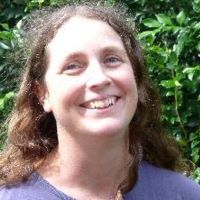 Professor Angela Moles FRSN, of the School of Biological, Earth and Environmental Sciences of UNSW (Sydney), has been awarded the Poggendorff Lectureship for 2020. Professor Moles is an international leader in the field of large-scale evolutionary ecology. In particular she studies the processes that shape global patterns and the way plants grow reproduce and interact with animals. She has a highly cited publication record and the innovation and quality of her work has been recognised by numerous awards.
Professor Angela Moles FRSN, of the School of Biological, Earth and Environmental Sciences of UNSW (Sydney), has been awarded the Poggendorff Lectureship for 2020. Professor Moles is an international leader in the field of large-scale evolutionary ecology. In particular she studies the processes that shape global patterns and the way plants grow reproduce and interact with animals. She has a highly cited publication record and the innovation and quality of her work has been recognised by numerous awards.
Poggendorff Lectureship 2018
Professor Robert F. Park FRSN, of the Plant Breeding Institute, University of Sydney, was awarded the Poggendorff Lectureship for 2018. Professor Park is a world leader in the pathology and genetics of cereal rust pathogens. This research not only transforms our fundamental understanding of genetic variability in all cereal rust pathogens, including the genetics of resistance to these diseases, but has also made significant contributions to (inter)national efforts to control these diseases, thus benefitting the agriculture sector enormously.
List of Past Recipients of the Poggendorff Lectureship
| Year & Lecturer |
|---|
|
1987 D.G. McDonald |
The Pollock Memorial Lectureship
The Pollock Memorial Lectureship has been awarded approximately every four years since 1949 and is sponsored by the University of Sydney and the Society in memory of Professor J.A. Pollock, Professor of Physics at the University of Sydney (1899-1922) and a member of the Society for 35 years.
Pollock Memorial Lectureship 2021
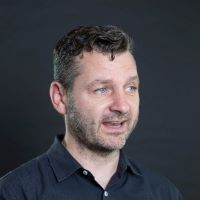 The Pollock Memorial Lectureship for 2021 has been awarded to Professor Geraint Lewis FRSN FLSW, Professor of Astrophysics in the Sydney Institute for Astrophysics in the School of Physics of the University of Sydney. An outstanding researcher, Professor Lewis focuses on cosmological mysteries. Through exquisite and extensive observations with the world’s largest telescopes coupled with synthetic universes generated on immense supercomputers, he hunts for the dark side — the dark matter and dark energy that shape the cosmos. With significant discoveries that confront our ideas on the formation and evolution of galaxies, he has published extensively in international journals. His passion for cosmology and physics is reflected in his teaching and student supervision, as well as an extensive outreach program that brings the mysteries of the universe to diverse international audiences.
The Pollock Memorial Lectureship for 2021 has been awarded to Professor Geraint Lewis FRSN FLSW, Professor of Astrophysics in the Sydney Institute for Astrophysics in the School of Physics of the University of Sydney. An outstanding researcher, Professor Lewis focuses on cosmological mysteries. Through exquisite and extensive observations with the world’s largest telescopes coupled with synthetic universes generated on immense supercomputers, he hunts for the dark side — the dark matter and dark energy that shape the cosmos. With significant discoveries that confront our ideas on the formation and evolution of galaxies, he has published extensively in international journals. His passion for cosmology and physics is reflected in his teaching and student supervision, as well as an extensive outreach program that brings the mysteries of the universe to diverse international audiences.
Pollock Memorial Lectureship 2017
The Pollock Memorial Lectureship for 2017 was awarded to Professor Andrea Morello FAPS FRSN, the Professor of Quantum Nanosystems inthe School of Electrical Engineering and Telecommunications, UNSW Sydney. Professor Morello is an internationally recognised leader in quantum science and technology who has invented and demonstrated all of the fundamental building blocks of a silicon quantum computer, thereby laying the foundations for its practical manufacture.
| Year & Lecturer | Year & Lecturer |
|---|---|
| 1949 T.M. Cherry 1952 H.S.W. Massey 1955 R. vd R. Woolley 1959 Sir Harold Jeffreys 1962 F. Hoyle 1965 F. Seitz 1969 A.R. Sandage 1972 L. Schwartz 1975 J.T. Wilson 1978 R.N. Bracewell |
1981 E.E. Salpeter 1984 R.S. Pease 1995 D. Mills 2001 M. Bilek 2006 B. Josephson 2009 B. Schmidt 2013 M. Simmons 2017 A. Morello 2021 G. Lewis |
The Liversidge Lecture
The Liversidge Lecture has been awarded at intervals of two years for the purpose of encouragement of research in Chemistry. It was established under the terms of a bequest to the Society by Professor Archibald Liversidge MA LLD FRS, who was the Professor of Chemistry at the University of Sydney from 1874 to 1907 and was one of the Council members who sponsored the Society's Act of Incorporation in 1881. Liversidge was the Society’s President three times, in 1885, 1889 and 1900.
Born in England, Liversidge was educated at the Royal College of Chemistry and the Royal School of Mines. In 1872 he joined The University of Sydney as ‘Reader in Geology and Assistant in the Laboratory’, and in 1874 was appointed Professor of Geology and Mineralogy. He later helped to establish the Industrial, Technological and Sanitary Museum, the forerunner of the Museum of Applied Arts and Sciences, and was prominent in the establishment of ANZAAS. Liversidge reformed the Society in the 1870s and was responsible for its incorporation. He was Honorary Secretary for many years, designing a new seal incorporating motifs representing the Sections of the Society, symbols of the Colony and broader characteristics of society.
Liversidge Lecture 2022
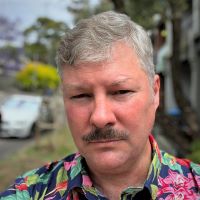 The Liversidge Lecture for 2022 has been awarded to Professor Timothy W Schmidt FRSN FRACI CChem of the School of Chemistry at UNSW Sydney. Professor Schmidt is internationally recognised as a molecular spectroscopist working on diverse problems from astrophysics to renewable energy. In the gas phase, he has recorded spectra of many hydrocarbon radicals for the first time and discovered new electronic excitations of the dicarbon molecule. In the condensed phase, his work concentrates on triplet-triplet annihilation and singlet fission for solar energy applications. His work has been recognised by a number of prizes including the Broida Prize (International Symposium on Free Radicals 2015), the Coblentz Award (2010), the RACI Physical Chemistry Lectureship and the RACI Physical Chemistry Medal (2021).
The Liversidge Lecture for 2022 has been awarded to Professor Timothy W Schmidt FRSN FRACI CChem of the School of Chemistry at UNSW Sydney. Professor Schmidt is internationally recognised as a molecular spectroscopist working on diverse problems from astrophysics to renewable energy. In the gas phase, he has recorded spectra of many hydrocarbon radicals for the first time and discovered new electronic excitations of the dicarbon molecule. In the condensed phase, his work concentrates on triplet-triplet annihilation and singlet fission for solar energy applications. His work has been recognised by a number of prizes including the Broida Prize (International Symposium on Free Radicals 2015), the Coblentz Award (2010), the RACI Physical Chemistry Lectureship and the RACI Physical Chemistry Medal (2021).
Liversidge Lecture 2020
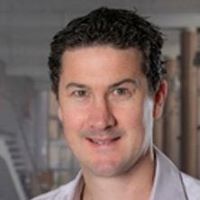 The Liversidge Lecture for 2020 was awarded to Professor Richard Payne FRSN FRACI FRSC of theSchool of Chemistry of the University of Sydney. Professor Payne’s research focusses on the development of technologies for the chemical synthesis of therapeutic peptides and proteins. These technologies have facilitated the preparation of numerous proteins bearing modifications that enhance activity and stability, critical features in the quest to develop efficacious protein therapeutics. His approaches have also been combined with recombinant methods to generate large therapeutic proteins and even antibodies—methods that have been widely adopted in the laboratories of international academics and pharmaceutical companies alike. He has developed synthetic proteins that are amongst the most potent antithrombotic agents ever reported, and which have an enormous therapeutic potential for thrombo- embolic disorders. Professor Payne has been awarded numerous prizes and medals including the 2014 RSNSW Edgeworth David Medal and the H G Smith and A J Birch Medals of the RACI.
The Liversidge Lecture for 2020 was awarded to Professor Richard Payne FRSN FRACI FRSC of theSchool of Chemistry of the University of Sydney. Professor Payne’s research focusses on the development of technologies for the chemical synthesis of therapeutic peptides and proteins. These technologies have facilitated the preparation of numerous proteins bearing modifications that enhance activity and stability, critical features in the quest to develop efficacious protein therapeutics. His approaches have also been combined with recombinant methods to generate large therapeutic proteins and even antibodies—methods that have been widely adopted in the laboratories of international academics and pharmaceutical companies alike. He has developed synthetic proteins that are amongst the most potent antithrombotic agents ever reported, and which have an enormous therapeutic potential for thrombo- embolic disorders. Professor Payne has been awarded numerous prizes and medals including the 2014 RSNSW Edgeworth David Medal and the H G Smith and A J Birch Medals of the RACI.
Liversidge Lecture 2018
The Liversidge Lecture for 2018 was awarded to Scientia Professor Martina Stenzel FRSN FAA. She is an ARC Future Fellow and co-director of the Centre for Advanced macromolecular Design, School of Chemistry, UNSW. Professor Stenzel, a polymer chemistry, is a leading authority in the field of RAFT polymerisation, and more recently on biomedical applications of polymers. These include drug delivery nanoparticles and anti-cancer applications of nanoparticles. Along with an extensive publication record, she has had a number of significant awards, including the LeFevre Medal from the Australian Academy of Science, a RACI polymer division citation award and, recently, election to the Australian Academy of Science.
A report on the 2018 Liversidge Lecture, delivered at UNSW Sydney on 20 February 2020, is now available.
List of Recipients of the Liversidge Lecture
|
Year & Lecturer |
Year & Lecturer |
|
1931 H. Hey |
1978 H.C. Freeman |

